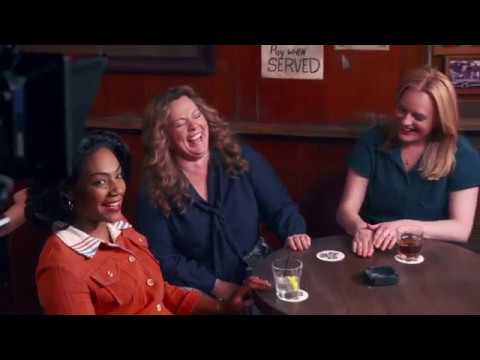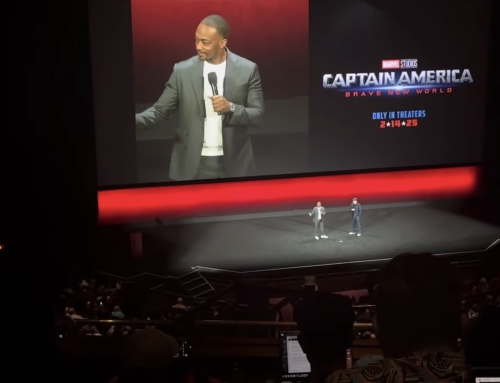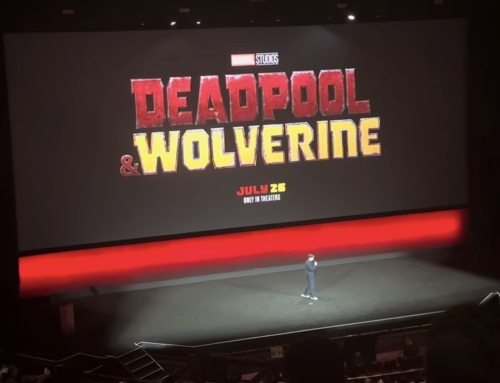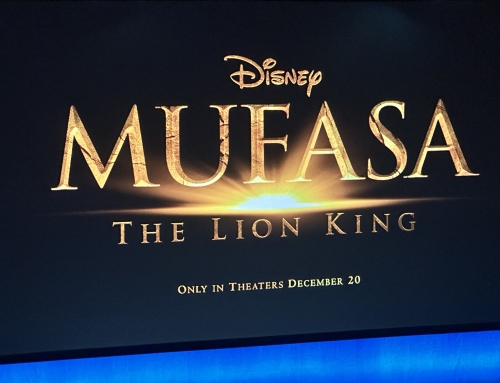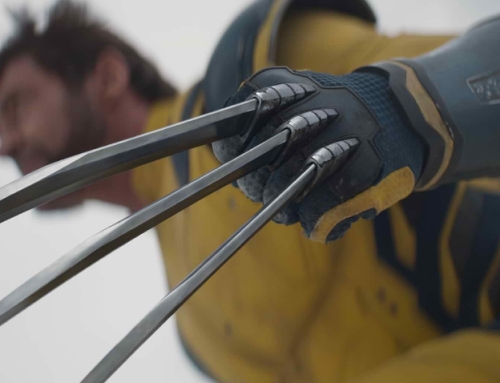New York City, 1978. The 20 blocks of pawnshops, porn palaces and dive bars between 8th Avenue and the Hudson River owned by the Irish mafia and known as Hell’s Kitchen was never the easiest place to live. Or the safest. But for mob wives Kathy, Ruby and Claire–played by Melissa McCarthy, Tiffany Haddish, and Elisabeth Moss–things are about to take a radical, dramatic turn. When their husbands are sent to prison by the FBI the women take business into their own hands, running the rackets and taking out the competition…literally.
Now they run the neighborhood.
The gritty, female-driven mob drama “The Kitchen,” from New Line Cinema and BRON Creative, is written and directed by Andrea Berloff, who was nominated for an Oscar for Original Screenplay for “Straight Outta Compton.”
The film also stars Domhnall Gleeson (“Star Wars: The Last Jedi”), James Badge Dale (“Only the Brave”), Brian d’Arcy James (“Spotlight”), with Margo Martindale (TV’s “The Americans”), Oscar winner Common (“Selma,” “Marshall”), and Bill Camp (“Vice”), with an ensemble cast including Jeremy Bobb (“Marshall”), E.J. Bonilla (TV’s “The Long Road Home”), Wayne Duvall (“Prisoners”), Annabella Sciorra (TV’s “Daredevil”), Myk Watford (HBO’s “True Detective”).
Berloff’s screenplay was based on the comic book series created for DC Vertigo by Ollie Masters and Ming Doyle. The film was produced by multiple Oscar nominee Michael De Luca (“Captain Phillips,” “Moneyball,” “The Social Network”) and Marcus Viscidi (“Rampage”). Serving as executive producers were Richard Brener, Michael Disco, Dave Neustadter, Aaron L. Gilbert, Jason Cloth, Elishia Holmes, and Adam Schlagman.
The creative filmmaking team included director of photography Maryse Alberti (“Creed”), production designer Shane Valentino (“Straight Outta Compton”), Oscar-nominated editor Christopher Tellefsen (“Moneyball,” “A Quiet Place”) and costume designer Sarah Edwards (“Ocean’s 8,” Showtime’s “Billions”). The music was composed by Bryce Dessner.
New Line Cinema presents, in Association with BRON Creative, a Michael De Luca Production, “The Kitchen.” It will be distributed worldwide by Warner Bros. Pictures. Rated R for violence, language throughout and some sexual content. TheKitchenMovie.com
The Kitchen and all related elements TM & © Ollie Masters and Ming Doyle. For downloadable press information: https://mediapass.warnerbros.com
ABOUT THE PRODUCTION
Times change. You do what you gotta do. You survive.
Mob wives Kathy, Ruby and Claire all bought into the same deal, that their men would take care of them and take care of business. But with their husbands now in prison, that deal is void and the odds quickly stack up against them. The neighborhood isn’t what it used to be. Revenues are down and competition is cutting in. The remaining members of the gang won’t pony up the cash to help the women make the rent, put food on the table or walk these streets without fear. If they want to survive, it’s up to them.
“This is about people who were never taken seriously, who realize they can’t sit back and let things happen to them anymore; they need to take charge and take action in a big way,” says writer/director Andrea Berloff, who makes her directorial debut with “The Kitchen,” following her Oscar-nominated turn as a screenwriter on the acclaimed “Straight Outta Compton.” “What drives these women and the way they seize control is exciting and aspirational, and something that I think anyone can understand. They move in on their husbands’ business and end up running it more effectively… and more ruthlessly.”
Likewise, Berloff pulls no punches with “The Kitchen.” A high-impact drama with a strong, female-driven cast and women in key roles behind the scenes, it takes full ownership of a genre not known for putting women at the top. Defying expectations across the board, it turns the classic mob drama upside down like never before, lending a contemporary tone to the distinctive style and vibe of the era and serving up plenty of action, attitude and shocking turns.
“Mob movies are among my favorites,” Berloff offers. But beyond that, “The chance to tell a story about these three unlikely crime lords, who start with nothing and learn to not only survive but thrive in a world that isn’t theirs and that they’re not welcomed into, felt fresh and exhilarating.”
Melissa McCarthy stars as Kathy Brennan, a wife and mother who will kill to protect her own—and whatever she decides to make her own. McCarthy was similarly drawn to the concept and to Berloff’s fast-paced, edgy script, declaring, “There’s an economy to her writing that’s really impressive. Andrea can put a lot into a very succinct shot and that’s the right way to tell a story like this. It really moves. When we first met she was very clear about the tone and the look, the strength and the unapologetic violence. And it’s always good when you can give audiences something they don’t necessarily see coming.”
For some, the mere thought of a McCarthy or Haddish casting could suggest a different kind of movie just because, despite their range, they are so indelibly associated with their brilliant comedy work. But that’s part of the game plan as “The Kitchen” confidently plays against type—
2
whether it’s actors known for humor getting down and dirty with serious dramatic roles, or female mob bosses ordering hits, dumping bodies and ruling their destinies in a way that’s remarkable today and would have been downright revolutionary in the ‘70s.
As Ruby O’Carroll, Tiffany Haddish channels the rage of a woman who’s constantly being dismissed and insulted and finally gets the chance to prove what she can really do. “We all go through things in life and even in the darkest circumstances there can be some surprising moments of light just to break the tension,” Haddish concedes. “That’s just part of living and being human. But this is every inch a drama and we played it absolutely straight, and, personally, I was thrilled to be able to explore that and show this side of myself on screen.”
The habitually battered Claire Walsh, meanwhile, in Elisabeth Moss’s hands, decides she’s had enough and she’s not going to take it anymore. From anyone. Moss explains, “Claire, Kathy and Ruby aren’t superheroes or villains. What I loved about the idea of this film is that it’s about three very different women who are not stereotypical and who each have their strengths and weaknesses, in their own ways. They’re flawed and they’re real.”
These women were never really friends. Their husbands were tight: drank together, backed each other up and ran the streets. It wasn’t till they were out of the picture that Kathy, Ruby and Claire started to view each other in a new way…as allies.
One thing is for sure: they’re never going back to the way things used to be.
“In February 2016, ‘Compton’ was just winding down when I became aware of The Kitchen comic,” Berloff recounts. “So I was already thinking a lot about things like the tension that happens when different people bump up against each other and what happens when people are not given the opportunities they deserve. Do they just take them? And what does that look like? We can’t be surprised when disenfranchised people try to overthrow the system if the system is not working for them.”
Citing the caliber of her three leads and what they bring to the mix, individually and as a team, she states, “Melissa, Tiffany and Elisabeth are fierce and phenomenally talented and it’s apparent in everything they do. Each in their own way found the voice of their character and brought them to life beyond what I put on the page. Their chemistry is singular.”
As the trio’s rise to power impacts people who are close to them, the film also offers a stellar ensemble of supporting performances, including Domhnall Gleeson as Gabriel O’Malley, a hitman sweet on Claire; Common as sharp FBI agent Silvers, gathering intel for the chance to break it all wide open; and Margo Martindale as Helen, Ruby’s mother-in-law from hell.
But for all its groundbreaking bravura in terms of women kicking ass, both in front of and behind the camera, at its heart “The Kitchen” is a no-holds-barred gangster saga that meets its
3
audience head on. “The fact that there were strong female leads was great and made me glad to be involved,” says Gleeson. “But really, for me, it’s all about the characters and the story. And this is a great story.”
For Common, the notes it strikes across the crime spectrum adds to the film’s allure: “It’s a drama but in many ways also a thriller. It keeps you guessing and lets you figure things out.”
Producers Michael De Luca and Marcus Viscidi had been following Berloff’s writing career and were eager to collaborate with her on this project for which they both had such a strong affinity. “I love gangster movies,” says multiple Oscar nominee De Luca. “Who doesn’t like to sit in the dark and pretend to be an outlaw, to experience the thrill and danger without having to break the law? Everyone romances the outlaw and the outsider and this was an opportunity to explore all of those elements in a new way.”
Viscidi concurs, noting, “It’s emotional, it’s compelling, it grabs you from the first scene to the last. I’ve always wanted to do a mob story but I didn’t want it to be traditional, and this put a nice spin on it. That’s probably a bit of an understatement,” he adds with a smile. “More like a big understatement.”
The filmmakers were also in sync when it came to production, shooting as much as possible on location in four of New York City’s five boroughs to recreate the late 1970s Hell’s Kitchen setting. Audiences will be transported to that unique place and time, with a rich visual style that upholds authenticity while evoking the story’s dark, graphic novel origins.
Berloff, a former Hell’s Kitchen resident, did extensive research into how economic stress, governmental neglect and changes in the long-standing population made a volatile mix that serves as the story’s backdrop. “Things were changing, the older Irish population that was dominant in that area for decades was beginning to be crowded out by other groups. It wasn’t a pretty time for New York. The city was broke, and people in the poorer neighborhoods knew they weren’t being taken care of like those in other, wealthier neighborhoods, whether it was school upkeep or trash collection. People felt threatened and I think a lot of violence came out of that as they tried to hold on to what little territory they had,” she says.
“It was a powder keg.”
CAST AND CHARACTERS
Just to be clear: now we run this neighborhood.
As Berloff further sets the stage, “Just being a woman in that world, there was a commonality of experience, whether you were Kathy or Claire, who had lived there all their lives
4
or Ruby, from Harlem, who everyone still saw as an outsider. People underestimate them. They have to find their own voices and figure out how to stand up for themselves and it’s a significant journey for them.”
Says McCarthy, “They know that not one of them alone can walk in and try to take over where their husbands left off, but the three of them together have a shot.”
Of the group, McCarthy’s Kathy had the best marriage, certainly the only one that appeared to include some mutual love and respect, and she’s the only one sorry to see her Jimmy go away. “Kathy was comfortable with her life,” McCarthy explains. “It’s not till Jimmy’s gone that she has to redefine who she is and what she can do. She pushes herself, out of necessity, into a position of power and then realizes that she likes being in charge. She’s a smart woman who’s never been allowed to run something, and when it turns out that she does it well, she takes pride in that. Also, she feels she can make some positive change in the lives of people in the neighborhood and that lets her stay in denial about the level of violence and crime.”
The way McCarthy sees it, Kathy and Jimmy, played by Brian d’Arcy James, may feel they’re just “good people doing bad things. But there’s a reckoning coming that’s unimaginable, and the way Brian plays it is perfect because, despite all the terrible decisions and brutality that define his life, he still brings a measure of humanity to that character.”
Ruby’s marriage to Kevin, played by James Badge Dale, is another story. Whatever their initial attraction might have been, that passion has run its course and they’ve settled into a familiar rut: he cheats on her and she doesn’t care. All the while, Haddish reveals, she keeps her eyes open. “Ruby strategically paid attention. She studied, she learned how things operated. But she was very slick about it, never in their faces asking what to do but more like a fly on the wall.
“Ruby just wants to have the best life possible,” Haddish continues. “She wants to feel empowered and that she has some control over her circumstances. As a woman in the ‘70s, it’s difficult, and as a black woman in Hell’s Kitchen she has so much to deal with already, people always telling her that she’s never going to have a say. It was wonderful to work with Andrea and see the growth and evolution of this character, because Ruby is definitely ready.”
Kevin’s sentence removes the final impediment from Ruby’s path. The former de facto leader of the gang, Kevin figures she can have her fun while he’s away and he might be willing to forgive and forget, but if he expects Ruby to relinquish control when he comes back, he’s in for one hell of a jolt.
When it comes to husbands, though, it’s Claire who drew the short straw with the violently abusive Rob, played by Jeremy Bobb. Though it’s not easy, “You can see that maybe at some point there was something about him that was charming,” Moss suggests. You kind of get why
5
she may have loved him, but then he became this brute. Life must not have turned out the way he wanted.”
For Claire, Rob’s incarceration is liberating, a virtual holiday from a cycle of bruises and black eyes from which even her daily rosary couldn’t protect her. Her change, therefore, is perhaps the sharpest and most dramatic. Still, Moss believes, the seeds of Claire’s transformation were planted long ago. “I think she’s surprised at first by what she’s capable of, but it’s also something that feels natural to her.”
Claire embraces her new status with a confidence that’s almost touching, despite the monstrous things she does. “There’s a joy in watching her take this arc. As messed up as it is, it’s the story of a woman finding her power the only way she can, at that time and place, and as a member of that community,” offers Moss. “It was important that Claire isn’t seen as some shy wallflower who suddenly becomes a killer. I felt she always had that strength and anger simmering underneath, which made her an interesting challenge to play. For a lot of women on that side of abuse, there aren’t many options. They don’t know how to make money, they don’t know how to leave, they’re afraid of retaliation. I wanted to honor that truth.”
Casting the important supporting roles of the husbands, Berloff acknowledges, “was a challenge. These actors not only had to embody their characters but be the perfect counterparts for their respective mates, because the dynamics of those relationships help shape the paths the women ultimately take. Brian, James and Jeremy were absolutely amazing. They brought tremendous energy, fierceness, and emotion to these complex characters.”
As Claire, Ruby and Kathy navigate their new reality as crime lords, the others in their lives fall into two categories: those who are with them and those who are against them.
Squarely in the first camp is Gabriel, played by Domhnall Gleeson. A hired gun, Gabriel is known for the dispassionately efficient way he takes down his targets…then takes them apart. He has just returned to the Kitchen from a cooling-off period out of town, following a job he did for Kevin, and quickly picks up that there’s been a change of management. He’s cool with that, which is a boon to the trio because everyone knows Gabriel is deadly, and hiring him shows upfront that they’re serious.
The saying goes, when the student is ready the teacher appears, and Gabriel finds Claire an avid learner. Factor in his longstanding feelings for her—inexpressible while Rob was around— and it’s easy to see how they might connect. Says Gleeson, “She doesn’t judge him for what he does; she’s actually interested in it and it’s something they can share. They’re kind of an odd couple, in their own little world, and the balance between them is absolutely even.” For Gleeson, as well as Moss and the filmmakers it was a key point that Gabriel is not Claire’s savior or a
6
source of security, but more like a mentor as she forges her own way. He concedes, “Claire would get to where she’s going even without Gabriel, but he gets her there faster just by backing her. She’s not had many people trust her or tell her she’s good at something.”
As Gabriel walks the line between casual violence and his own kind of soulful sensitivity, Gleeson says, “I never thought of him as a psychopath despite what some of the other characters say about him. I took him as a guy who’s good at his job and he just gets on with it.”
“He’s not a man of many words,” adds Berloff, “and I knew Domhnall would be able to communicate a lot without a lot of talk. He has incredible depth.”
Meanwhile, working the other side of the street is FBI agent Gary Silvers, a regular but largely unseen Hell’s Kitchen figure, played by Common, about whose performance Berloff notes, “It brought a restrained intensity to that role and completely elevated what could have been more of a run-of-the-mill agent.”
But there’s nothing run-of-the-mill about him. Says Common, “To be an FBI agent you have to be intelligent. You have to have your wits about you and know how to maneuver in different situations, and to be a black FBI agent in the ‘70s you really had to work to establish yourself. Silvers is focused and determined to do great work. He’s all about the business and he’s direct about what he’s after. But there’s a part of him that remains elusive. He’s a complicated character.”
It was Silvers’ surveillance that led to the liquor store robbery bust that so explosively opens “The Kitchen” and sends Jimmy, Rob and Kevin to prison. It’s a triumph for the agency, but certainly not the end of organized crime in the area and Silvers is too savvy an agent to take a premature victory lap. He knows this is for the long haul.
Finally, representing what defined female clout on these streets in a bygone era, Margo Martindale stars as Helen O’Carroll, Ruby’s spiteful mother-in-law. An old-school manipulator and power broker, Helen doesn’t realize—or won’t accept—that things are different now. As relentlessly rude as she is to Ruby, she is devoted to her dear son, Kevin, and holds sway in the community through her connection to him, just like she did years ago through his father. Berloff observes, “Helen used to be the queen bee of the neighborhood, but do you ever really have power if it’s not in your own name? First it was her husband and then her son and even if she was the one pulling the strings she never had the recognition, and that’s what I wanted Ruby to show her. If you allow other people to speak for you, you really don’t have a voice.”
As for casting veteran actor Martindale, the director says, “Come on, it wasn’t even a conversation. There was nobody better to play that role than Margo.”
7
Martindale enjoyed trading barbs with Haddish on screen, while forming fast friendships with her, McCarthy and Moss during production. And her take on Helen is spot-on. “She’s pissed off because these women are taking the title away from her,” she says. “I think Helen would have liked to have done that but she’s from a different generation. She had influence in her time but always did it quietly and let the men be the front guys because she thinks people won’t be pushed around by a woman. Even now, as Ruby starts to take over, Helen figures she’s going to be out of business as soon as Kevin gets out. But she’d be wrong.”
Rounding out the main cast, Bill Camp is Brooklyn-based Italian mob boss Alfonso Coretti. Coretti is intrigued by the aggression and business sense that Kathy, Ruby and Claire display and is in a position to either make a deal with them or, as he makes it clear, remove them from the face of the Earth. Wayne Duvall is Kathy’s working-class, union-proud father, Larry, who views his daughter’s rise with mixed feelings. E.J. Bonilla is Silver’s partner, FBI Agent Martinez; Annabella Sciorra is Coretti’s battle-hardened wife, Maria; and Myk Watford is the gang’s Little Jackie, whose refusal to take the women seriously could be his undoing.


